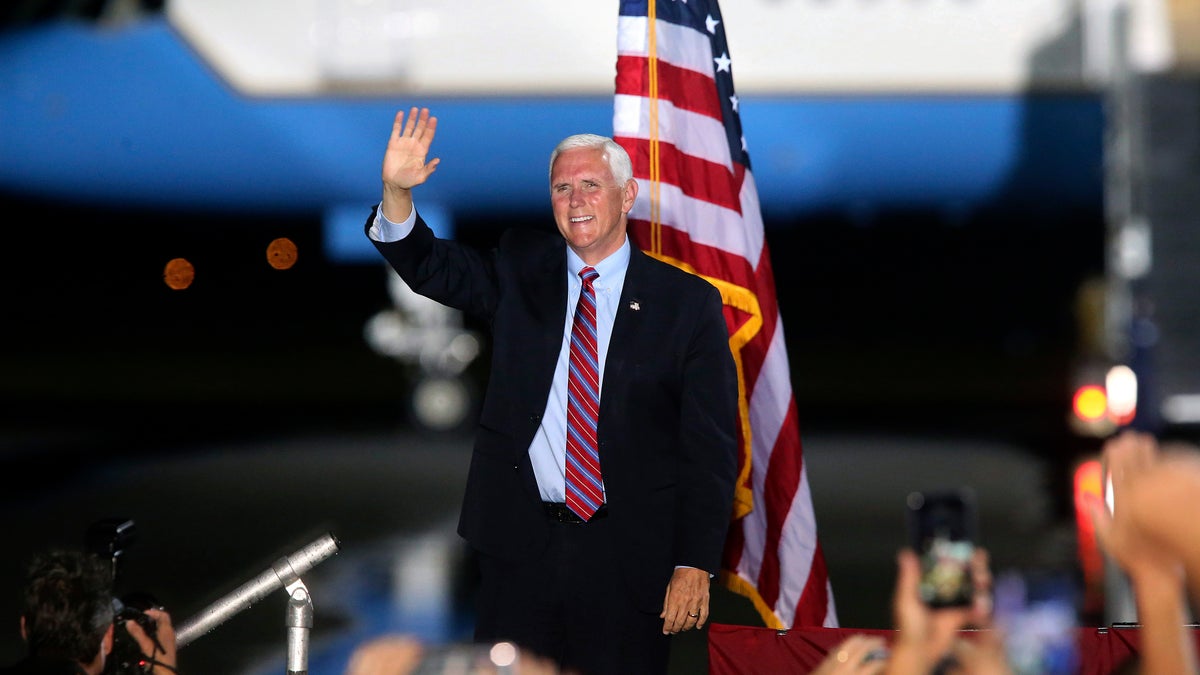Dr. Amesh Adalja: Pence is at 'very high risk of getting coronavirus'
Five staffers test positive for coronavirus; infectious disease expert joins 'America's News HQ' with insight.
Infectious disease expert Dr. Amesh Adalja told “America’s News Headquarters” on Sunday that he would advise Vice President Mike Pence to cancel any travel and self-quarantine after four staffers and an outside adviser tested positive for the coronavirus.
Pence, who with second lady Karen Pence tested negative Sunday, is still at “significant” risk of exposure. Nine days from Election Day, he plans to maintain his planning campaign travel to Kinston, N.C., Sunday, his office said.
“The vice president is at very high risk for developing coronavirus,” Adalja said. “Him getting daily tests is only going to take the risk down a little bit. There probably is a need for him to self-quarantine for 14 days based on the amount of people around him that are positive.”
5 CLOSE TO PENCE TEST POSITIVE FOR CORONAVIRUS, VP TO MAINTAIN CAMPAIGN SCHEDULE, OFFICE SAYS
Adalja said he’d like to know the nature of the interactions Pence has had with his aides prior to confirmed infection, and if masking was involved.

Pence waves to supporters Saturday Oct. 24, 2020 in Tallahassee, Fla. (AP Photo/Steve Cannon)
Adalja said he “can’t say that it’s safe” to continue to campaign.
“He likely was significantly exposed,” he said. “And we know that a test is just one moment in time and that you can’t test yourself out of self-quarantine.”
Adalja suggested Pence follows Centers for Disease Control and Prevention guidance surrounding coronavirus exposure by quarantining regardless of test results, holding the vice president to the standard “every American is held to.”
CLICK HERE TO GET THE FOX NEWS APP
The New York Times is reporting White House Chief of Staff Mark Meadows has tried to keep news of the recent outbreak quiet, which Adalja said is a public safety hazard.
“You want to be as transparent as possible,” he said. “And we want people to know who might’ve interacted with the vice president that they could’ve been significantly exposed. ... That's how we move forward in this pandemic is being very open about who's at risk.”










































